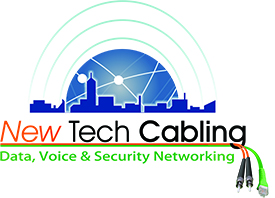When it comes to setting up a commercial space, one of the most important considerations is choosing the right type of cables for your installation. The efficiency and effectiveness of your network and communication systems heavily rely on the quality of cables you use. With a wide array of options available in the market, it can be overwhelming to determine which cables are most suitable for your specific needs. In this blog, we will discuss the factors you need to consider when selecting cables for your commercial installation.
Types of Cables:
Before delving into the specifics of each type of cable, it is important to understand the basic categories available. The most commonly used cables for commercial installations are Ethernet cables, fiber optic cables, and coaxial cables. Each type of cable serves a different purpose and has varying capabilities, so it’s crucial to assess your requirements before making a decision.
1. Ethernet Cables:
Ethernet cables are the most widely used cables for networking purposes in commercial spaces. They are commonly used to connect devices such as computers, printers, and routers to local area networks (LANs). Ethernet cables come in different categories, with Cat5e, Cat6, and Cat6a being the most popular choices for commercial installations. Cat5e cables are suitable for basic networking needs, while Cat6 and Cat6a cables offer higher bandwidth and faster transmission speeds, making them ideal for larger commercial spaces with heavy network traffic.
2. Fiber Optic Cables:
Fiber optic cables are known for their high-speed data transmission capabilities and long-distance connectivity. These cables use light signals to transmit data, making them immune to electromagnetic interference and capable of handling large volumes of data with minimal loss. Fiber optic cables are ideal for commercial installations that require high-speed internet, such as data centers, telecommunication companies, and large corporations. While fiber optic cables are more expensive than Ethernet cables, their superior performance justifies the investment for businesses that rely on fast and reliable network connections.
3. Coaxial Cables:
Coaxial cables are commonly used for cable television and broadband internet connections in commercial settings. These cables are designed with a central conductor surrounded by a dielectric insulator and an outer conductor that acts as a shield against interference. Coaxial cables are known for their durability and reliable signal transmission, making them suitable for environments where signal integrity is crucial. While coaxial cables are not as commonly used for general networking purposes as Ethernet or fiber optic cables, they are essential for certain applications in commercial installations.
Factors to Consider:
When choosing cables for your commercial installation, there are several factors to consider to ensure optimal performance and compatibility with your network infrastructure.
1. Bandwidth Requirements:
One of the most important factors to consider is the bandwidth requirements of your commercial space. If you have a high volume of network traffic and data transfer needs, opting for cables with higher bandwidth capabilities, such as Cat6 or fiber optic cables, is recommended to ensure smooth and efficient operations.
2. Distance:
The distance between network devices plays a crucial role in determining the type of cables you need for your installation. While Ethernet cables are suitable for short to medium distances, fiber optic cables are better suited for long-distance connectivity without compromising data speed and integrity.
3. Environment:
Consider the environmental conditions of your commercial space when selecting cables. Factors such as temperature, humidity, and potential interference from electrical sources can impact the performance of your cables. Choose cables that are designed to withstand the specific environmental challenges of your installation to ensure long-term reliability.
4. Future-Proofing:
To future-proof your commercial installation, consider investing in cables that support higher data speeds and technologies. Upgrading to Cat6 or fiber optic cables may require a higher initial investment, but it can save you money and time in the long run by accommodating future network upgrades and advancements without the need for frequent cable replacements.
Summary:
Choosing the right type of cables for your commercial installation is a critical decision that can significantly impact the functionality and efficiency of your network infrastructure. By evaluating your specific requirements, considering factors such as bandwidth, distance, environment, and future-proofing, you can make an informed decision that meets your business needs and ensures a reliable and high-performance network system. Whether you opt for Ethernet, fiber optic, or coaxial cables, investing in quality cables from reputable manufacturers will provide a solid foundation for your commercial space’s networking capabilities.
Need Network Cabling Professionals Near You?
Here at New Tech Cabling, we are an industry leader with proven success in the design, installation and maintenance of the latest technology cabling the industry has to offer today. Our team takes the time to understand your needs, and then produces network cabling solutions that simply work better. If you’re looking for a group of intelligent professionals committed to innovation, contact us today to schedule a consultation. We look forward to making things happen for you!


Recent Comments